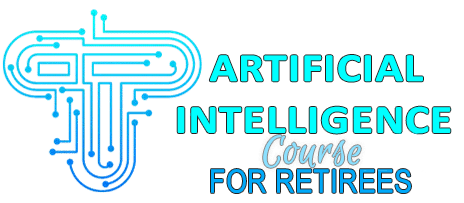
10 Surprising Ways AI Can Simplify Retirement Living
Introduction: The Role of AI in Retirement Living
Imagine having a personal assistant who knows your needs before you even voice them, or a companion who is there for you 24/7, ready to provide support and assistance whenever you need it. Thanks to the advancements in Artificial Intelligence (AI), these scenarios are no longer confined to the realms of science fiction. In today's rapidly evolving technological landscape, AI has become an indispensable tool, offering a myriad of benefits and solutions tailored to simplify the lives of retirees.
Retirement is a time for relaxation, enjoyment, and fulfillment, but it can also come with its challenges. From managing healthcare needs to ensuring financial security and maintaining an active lifestyle, retirees often face a multitude of tasks and decisions. This is where AI steps in, offering innovative solutions to address these challenges and enhance the overall retirement experience.
Throughout this article, we'll explore 10 surprising ways AI can revolutionize retirement living, from personalized healthcare assistance to smart home automation and beyond. Get ready to discover how AI is transforming retirement living and empowering seniors to live their best lives.
1. Personalized Healthcare Assistance
One of the most significant benefits of AI in retirement living is its ability to provide personalized healthcare assistance. Through sophisticated algorithms and machine learning capabilities, AI-powered healthcare platforms can analyze vast amounts of data to identify trends, patterns, and potential health risks. For retirees, this means access to proactive and preventive care tailored to their individual needs.
Imagine having a virtual healthcare companion that monitors your vital signs, tracks medication adherence, and alerts you to any deviations from your normal health parameters. With AI-driven healthcare solutions, retirees can enjoy peace of mind knowing that their health is being closely monitored, and interventions can be initiated promptly if necessary.
Moreover, AI-powered telemedicine platforms enable retirees to consult with healthcare providers remotely, eliminating the need for frequent trips to the doctor's office. This not only saves time and effort but also ensures continuity of care, especially for those living in remote or underserved areas.
- Receive personalized healthcare assistance tailored to individual needs
- Access proactive and preventive care through AI-driven platforms
- Monitor vital signs, track medication adherence, and receive alerts for any health deviations
- Consult with healthcare providers remotely through AI-powered telemedicine platforms
3. Enhanced Safety and Security
AI technology also plays a crucial role in enhancing safety and security for retirees. Smart home automation systems powered by AI algorithms can monitor the home environment in real-time, detecting potential hazards such as fires, gas leaks, or intruders. By alerting residents and emergency services promptly, these systems can help prevent accidents and mitigate risks.
Moreover, AI-driven surveillance cameras and facial recognition technology provide an additional layer of security, allowing retirees to monitor their property remotely and identify unfamiliar faces or suspicious activities. This level of surveillance offers peace of mind, especially for those living alone or in neighborhoods with higher crime rates.
Additionally, AI-powered fall detection devices and wearable sensors can detect sudden falls or accidents and automatically alert emergency contacts or medical services. This rapid response capability can be life-saving in critical situations, ensuring that help arrives promptly when needed.
- Smart home automation systems detect hazards such as fires, gas leaks, or intruders
- AI-driven surveillance cameras and facial recognition technology enhance home security
- Fall detection devices and wearable sensors alert emergency contacts in case of accidents
